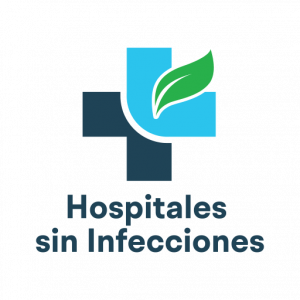Investigadores de la Universidad de Queensland (UQ) han realizado un estudio sobre las cuatro principales bacterias que causan sepsis, proporcionando nuevos objetivos para el desarrollo de antibióticos. Se considera que el estudio de sepsis impulsará nuevos descubrimientos de antibióticos.
El profesor Mark Walker y el profesor Mark Schembri del Instituto de Biociencia Molecular de la Universidad de Queensland, junto con el Dr. Andre Mu de la Universidad de Melbourne y equipos de 23 organizaciones de investigación de Australia, realizaron experimentos para imitar lo que les sucede a las bacterias cuando ingresan al torrente sanguíneo durante la infección.
Antecedentes
De acuerdo a datos del “Informe mundial sobre la epidemiología y la carga de la sepsis” de la Organización Mundial de la Salud (OMS) la sepsis causa el 20% de las muertes en todo el mundo, matando a más personas que los ataques cardíacos, los accidentes cerebrovasculares o los cánceres de próstata, mama o colon.
En el artículo revisado por pares “Integrative omics identifies conserved and pathogen-specific responses of sepsis-causing bacteria” publicado en Nature Communications informan que la sepsis se caracteriza por una falla orgánica asociada a la infección, lo que deja a los sobrevivientes con efectos secundarios físicos, cognitivos y psicológicos que pueden persistir por el resto de sus vidas.
Estudiando 4 bacterias
El profesor Walker comentó que el equipo de investigación se propuso encontrar respuestas comunes a los cuatro tipos de bacterias que causan sepsis y descubrir más sobre cómo sobreviven las bacterias en el cuerpo. Los patógenos son:
- Escherichia coli
- Klebsiella pneumoniae species complex
- Staphylococcus aureus
- Streptococcus pyogenes
“Actualmente, cuando alguien va al hospital con sepsis, se le trata de inmediato con antibióticos, que pueden tener que ajustarse una vez que se haya identificado el tipo de bacteria”, dijo el profesor Walker.
“Este estudio nos permitió identificar nuevos objetivos potenciales para los antibióticos que se dirigen a todas las bacterias que causan sepsis”. El profesor Walker afirma que la mayoría de los estudios de sepsis se centran en una sola especie bacteriana.
“Nuestro equipo estudió múltiples especies bacterianas y utilizó varias tecnologías avanzadas”, dijo.
“Hemos podido caracterizar genes bacterianos, ARN, proteínas y metabolitos de E. coli, Streptococcus del grupo A, Klebsiella pneumoniae y Staphylococcus aureus e integrar los datos para obtener una imagen completa de cómo responden las diferentes especies cuando se cultivan en suero sanguíneo humano.”
Disponibilidad de los datos
El estudio reunió a las comunidades australianas de investigación de patógenos bacterianos y ciencias biológicas y generó una gran cantidad de datos.
“Estos datos ahora están disponibles públicamente”, dijo el profesor Schembri.
“Los investigadores de todo el mundo podrán extraer este conjunto de datos para impulsar el descubrimiento y el desarrollo de antibióticos, lo cual es fundamental dado el rápido aumento de la resistencia a los antibióticos que se observa a nivel mundial”.
El consorcio de la Iniciativa Marco de Patógenos Sepsis Resistentes a los Antibióticos cuenta con el apoyo financiero de Bioplatforms Australia, con el soporte de la Estrategia Nacional de Infraestructura de Investigación Colaborativa del Gobierno Australiano (NCRIS).
Referencias
- Andre Mu, William P. Klare, Sarah L. Baines, C. N. Ignatius Pang, Romain Guérillot, Nichaela Harbison-Price, Nadia Keller, Jonathan Wilksch, Nguyen Thi Khanh Nhu, Minh-Duy Phan, Bernhard Keller, Brunda Nijagal, Dedreia Tull, Saravanan Dayalan, Hwa Huat Charlie Chua, Dominik Skoneczny, Jason Koval, Abderrahman Hachani, Anup D. Shah, Nitika Neha, Snehal Jadhav, Sally R. Partridge, Amanda J. Cork, Kate Peters, …Mark J. Walker; Integrative omics identifies conserved and pathogen-specific responses of sepsis-causing bacteria; Nature Communications volume 14, Article number: 1530 (2023); Publicado el 18 de marzo de 2023; DOI: 10.1038/s41467-023-37200-w; Disponible en el URL: https://www.nature.com/articles/s41467-023-37200-w
- World Health Organization; Global report on the epidemiology and burden of sepsis: current evidence, identifying gaps and future directions; ISBN 978-92-4-001078-9; Disponible en el URL https://apps.who.int/iris/bitstream/handle/10665/334216/9789240010789-eng.pdf
Sepsis study will promote new antibiotic discoveries
Researchers at the University of Queensland (UQ) have conducted a study on the four main bacteria that cause sepsis, providing new targets for antibiotic development.
Professor Mark Walker and Professor Mark Schembri from the Institute for Molecular Bioscience at the University of Queensland, together with Dr Andre Mu from the University of Melbourne and teams from 23 Australian research organisations, conducted experiments to mimic what happens to them. to bacteria when they enter the bloodstream during infection.
Background
According to data from the “World Report on the Epidemiology and Burden of Sepsis” from the World Health Organization (WHO), sepsis causes 20% of deaths worldwide, killing more people than heart attacks, stroke, or prostate, breast, or colon cancers.
In the peer-reviewed article “Integrative omics identifies conserved and pathogen-specific responses of sepsis-causing bacteria” published in Nature Communications they report that sepsis is characterized by infection-associated organ failure, leaving survivors with physical, cognitive and psychological side effects that can persist for the rest of their lives.
Studying 4 bacteria
Professor Walker commented that the research team set out to find common answers to the four types of bacteria that cause sepsis and to find out more about how the bacteria survive in the body. The pathogens are:
- Escherichia coli
- Klebsiella pneumoniae species complex
- Staphylococcus aureus
- Streptococcus pyogenes
“Currently, when someone goes to hospital with sepsis, they are immediately treated with antibiotics, which may have to be adjusted once the type of bacteria has been identified,” said Professor Walker.
“This study allowed us to identify potential new targets for antibiotics that target all bacteria that cause sepsis.” Professor Walker says that most sepsis studies focus on a single bacterial species.
“Our team studied multiple bacterial species and used several advanced technologies,” he said.
“We have been able to characterize bacterial genes, RNA, proteins, and metabolites from E. coli, group A Streptococcus, Klebsiella pneumoniae, and Staphylococcus aureus and integrate the data to obtain a comprehensive picture of how different species respond when cultured in human blood serum.”
Data availability
The study brought together the Australian bacterial pathogens and life sciences research communities and generated a wealth of data.
“These data are now publicly available,” Professor Schembri said.
“Researchers around the world will be able to mine this dataset to drive antibiotic discovery and development, which is critical given the rapid rise in antibiotic resistance being seen globally.”
The Antibiotic-Resistant Sepsis Pathogens Framework Initiative consortium is financially supported by Bioplatforms Australia, with support from the Australian Government’s National Collaborative Research Infrastructure Strategy (NCRIS).
References
- Andre Mu, William P. Klare, Sarah L. Baines, C. N. Ignatius Pang, Romain Guérillot, Nichaela Harbison-Price, Nadia Keller, Jonathan Wilksch, Nguyen Thi Khanh Nhu, Minh-Duy Phan, Bernhard Keller, Brunda Nijagal, Dedreia Tull, Saravanan Dayalan, Hwa Huat Charlie Chua, Dominik Skoneczny, Jason Koval, Abderrahman Hachani, Anup D. Shah, Nitika Neha, Snehal Jadhav, Sally R. Partridge, Amanda J. Cork, Kate Peters, …Mark J. Walker; Integrative omics identifies conserved and pathogen-specific responses of sepsis-causing bacteria; Nature Communications volume 14, Article number: 1530 (2023); Published 18 de march 2023; DOI: 10.1038/s41467-023-37200-w; Aviable URL: https://www.nature.com/articles/s41467-023-37200-w
- World Health Organization; Global report on the epidemiology and burden of sepsis: current evidence, identifying gaps and future directions; ISBN 978-92-4-001078-9; Avaible URL https://apps.who.int/iris/bitstream/handle/10665/334216/9789240010789-eng.pdf






